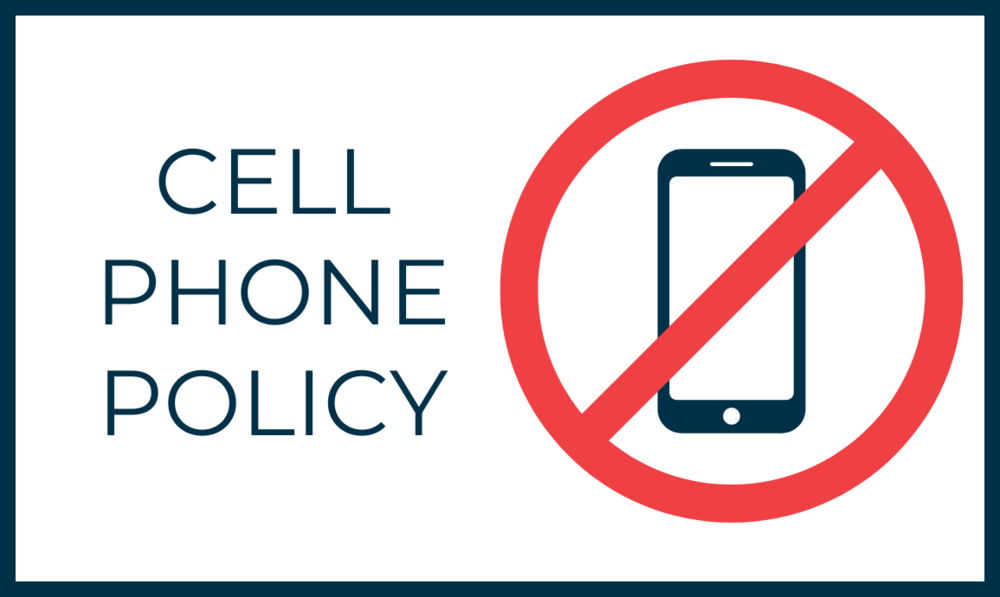Book Policy Manual
Section 5000 Series
Title Cell Phone Policy
Code
Status
Adopted
Purpose.
- Personal electronic devices contribute to a negative classroom environment with
increased concerns relating to distractions, academic misconduct, bullying and/or harassment
and other inappropriate behaviors. Concerns regarding the mental health of students with
unfettered access to personal electronic devices are well-documented and are believed to prohibit
the age-appropriate development of relationships, study skills, and other necessary skills to be
successful.
Application.
– Beginning with the 2025-2026 school year Fayette County Board of Education
adopted this policy that includes, but is not limited to, the requirements established for
implementation of the proper use of cell phones in the schools.
Definitions.
-
(1) "Personal Electronic Device" means any portable device capable of wireless
communication or computing including, but not limited to, cellular phones, Bluetooth ear buds,
tablets, laptops, smartwatches, and portable gaming systems not provided by a county board of
education.
(2) "Instructional Day" means the period of time from the start of the first instructional
period to the end of the last instructional period, including transition times between classes and
field trips. Phone usage will not be allowed from the arrival to school until the dismissal from
school at the end of the day.(3) "Classroom Setting" means an environment where instruction or activities related to
the school curriculum are occurring including, but not limited to, general classrooms, gymnasiums,
common areas, or any other area where instruction may occur.
Prohibition of Personal Electronic Devices During Instructional Time.
- As personal electronic
devices are a privilege and are not contributable to the appropriate development and growth of
students, all personal electronic devices shall not be accessible to students for use in a classroom
setting during instructional time, with the exception of exemptions set forth in this policy.
Personal electronic devices will be permitted on school property provided that;
a) the student is in grades 6-12. No student at an elementary setting may have a
cell phone at school.
b) the student in grades 6-12 stores the device in their lockers during the
instructional day provided that the following exemptions are allowed:
i) Students with an approved documented need, as required by a medical
doctor or licensed healthcare professional or as a requirement of an Individualized
Education Plan (IEP) or 504 plan, may have access to personal electronic devices
if the device relates to the student's specific need. An exemption related to a
student's IEP or medical order shall include a timeline of the required exemption
and specify what electronic device(s) shall be included in the exemption.
ii) Students may be given permission to use specific personal electronic
devices as related to the requirements of a county board of education approved
work-based learning program or a dual credit college course. The approval shall
include the specific course and purpose for which an electronic device may be
used.
This policy includes the following consequences for students determined to have violated the
policy including, but not limited to, the following:(A) A grace period lasting four weeks at the beginning of the 25-26 SY allowing for
students and parents to acclimate to the new policy. The policy will be reviewed with
the students and the parents before any action happens in the WVEIS discipline
system.
(B) The consequences for the first offense, after the grace period, is an office conference
and the phone must be picked up by the parent.
(C) The consequences for a second offense is one (1) day suspension for violating school
rules.
(D) The consequences for a third offense is a three (3) day suspension for violating school
rules, and subsequent offenses could result in possible alternative school placement
due to violation of the habitual rule.
(C) Prohibiting an individual student from possessing any device if previous misuse has
been documented. However, if a student is prohibited from possessing electronic devices
on school property, a conference shall be offered to the parent/guardian to discuss the
reasoning for the prohibition.
All violations shall be documented in the West Virginia Education Information System (WVEIS).
Parent notification. Schools shall make reasonable efforts to ensure that information related to
acceptable use of personal electronic devices is disseminated to students and their
parents/guardians including posting signs on school property and publishing the information in
student handbooks, newsletters, social media, and county or school websites.
The Local School Improvement Council (LSIC) of each school shall annually discuss the progress
of implementing the county board's personal electronic device policy. The LSIC shall, at a
minimum, review the relevant discipline data and make recommendations designed to promote
student compliance with the policy.Each school is required to develop and publish protocols regarding how parents/guardians may
communicate with their children in a manner that does not distract the student in the learning
environment. This may include, but is not limited to, establishing specific times when personal
electronic devices are permissible, utilizing office staff to disseminate information from the
parent/guardian, or any other applicable strategy designed to minimize disruption during
instructional time.
Severability.
- If any provision of this policy or the application thereof to any person or
circumstance is held invalid, such federal legislation or invalidity shall not affect other provisions
or applications of this policy.

